Shortness of breath, wheezing while climbing stairs, a lingering cough — these symptoms could be attributed to COPD. You may have heard the acronym COPD tossed around without truly knowing what this disease, or rather group of diseases entails. Millions of Americans are affected by COPD, and many of them are not even aware that they have it.
If you or someone you know have been diagnosed with COPD, or think you may be suffering from COPD, here is everything you need to know about the condition.
What Is COPD?
Chronic Obstructive Pulmonary Disease (COPD) refers to a group of respiratory diseases that cause breathing-related issues by obstructing airflow. COPD includes chronic bronchitis, emphysema and asthma. COPD is a major cause of death in the United States.
Chronic Bronchitis is a consistent inflammation of the air pathways to the lungs during a longer period of time. The risk of chronic bronchitis increases with age. Emphysema causes damage to the air sacs in your lungs. More than 90% of emphysema cases are in people over the age of 45.
Symptoms Of COPD
In many cases of COPD, symptoms develop gradually over time. Early symptoms include shortness of breath and becoming easily exhausted. Later, people may develop a cough, which can produce mucus, phlegm or even blood. Patients often feel a tightness in their chest and physical activity can make breathing extremely difficult.
COPD also makes people more susceptible to other diseases such as the flu, pneumonia and the common cold. People with COPD may also have an increased risk of dangerous diseases such as high blood pressure and heart disease.
Causes Of COPD
In the United States, one of the key factors in developing COPD is smoking. Other elements such as pollution, genetics and respiratory infections also play a role, but at a lesser scale than smoking for most adult Americans.
Treatment For COPD
For some, the simplest treatment for COPD if you are a smoker is to quit smoking. While quitting itself isn’t easy, it will ease the symptoms of COPD and prevent it from worsening. Talk to your doctor about medications and products that may help with quitting. Other options are medications that treat the symptoms of COPD, such as bronchodilators and inhaled steroids.
Oxygen therapy may be prescribed if there isn’t enough oxygen in your lungs, requiring supplemental oxygen to be added via a medical device. Some with COPD carry around lightweight oxygen tanks that are portable and make it easier for them to get around without their symptoms of COPD weighing down on their daily tasks.
Lastly, your doctor may recommend a pulmonary rehabilitation program. In the program, you’ll work with specialists who combine exercise, advice, counseling, and education to improve your overall quality of life.
COPD Support Group
Living with COPD is difficult. People with COPD often have to sacrifice things they once loved to the disease, like physical activity, making it hard to adjust. It can help to share your experience with family, friends and your doctor, or consider a support group with other people suffering from COPD.
More Information
If you suspect you may have COPD, make an appointment with one of our pulmonary specialists, who will be able to run tests to diagnose whether or not you have the disease. And, as always, be sure to make any positive lifestyle changes you can control, such as quitting smoking or changing your diet. To book an appointment, contact us today!

